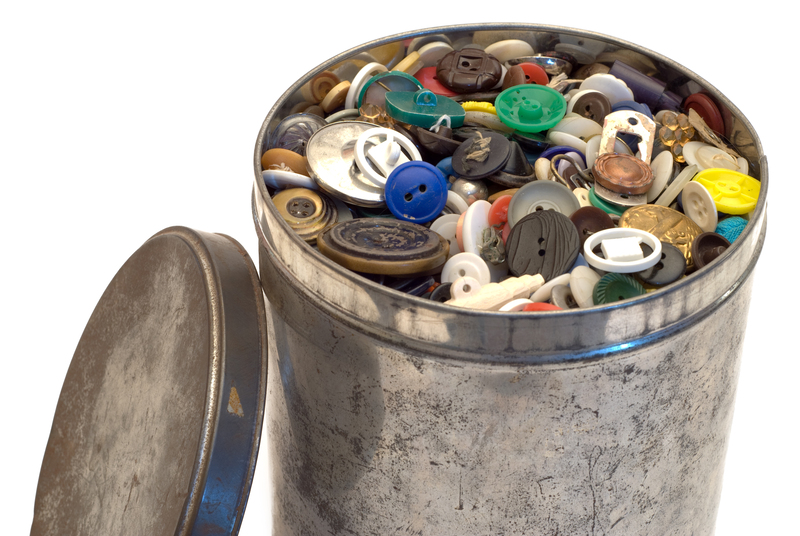Innovative Tips for Elevating Home Eco-Friendliness
In today's world, enhancing home eco-friendliness isn't just an ethical choice; it's a necessary move towards sustainability. Not only does it contribute to a healthier planet, but it also promotes a healthier living environment for your family. Below are some innovative and practical tips to enhance the eco-friendliness of your home.
Understanding the Importance of Eco-Friendly Homes
Before delving into tips and strategies, understanding why we should strive for a more sustainable home is crucial. Traditional homes consume significant amounts of energy, contribute to environmental degradation, and generate unnecessary waste. By transitioning to a more environmentally friendly home, you reduce your carbon footprint, save on utility bills, and create a safer environment for future generations.
Energy Efficiency: The Core of Eco-Friendly Homes
One of the most effective ways to elevate your home's eco-friendliness is through energy efficiency. Here are some tips to get started:
- Install smart thermostats: These devices automatically adjust heating and cooling to optimize energy consumption and reduce waste.
- Use LED lighting: LED bulbs use up to 80% less energy than traditional incandescent bulbs and last significantly longer.
- Upgrade to energy-efficient appliances: Look for appliances with the Energy Star label, which are designed to consume less energy without sacrificing performance.
- Seal and insulate: Proper insulation and sealing gaps in windows and doors can prevent heat loss and reduce energy bills.
Renewable Energy Sources
Transitioning to renewable energy sources is another significant step towards achieving an eco-friendly home:
- Solar panels: Invest in solar panels to harness the power of the sun for your home's energy needs.
- Wind turbines: While more commonly used in rural areas, small wind turbines can also provide renewable energy for homes.
- Geothermal systems: These systems use the thermal energy stored underground to heat and cool your home efficiently.
Water Conservation Techniques
Water is a precious resource, and conserving it is essential for an eco-friendly home:
- Install low-flow fixtures: Low-flow toilets, showerheads, and faucets significantly reduce water consumption without sacrificing performance.
- Harvest rainwater: Use rain barrels to collect rainwater for gardening and other outdoor uses.
- Repair leaks: Regularly check for and repair any leaky faucets or pipes to avoid water wastage.
Sustainable Materials for Green Building
Building and renovating with sustainable materials reduces environmental impact and often leads to more durable and healthier homes:
- Bamboo flooring: Bamboo is a renewable resource, grows quickly, and is an excellent alternative to traditional hardwoods.
- Recycled steel: Using recycled materials reduces the need for new raw materials and decreases the carbon footprint.
- Eco-friendly paints: Choose paints with low volatile organic compounds (VOCs) to improve indoor air quality.
Adopting a Less Waste Lifestyle
Making your home eco-friendly extends beyond energy efficiency and water conservation. Embrace a lifestyle that minimizes waste:
- Composting: Composting kitchen scraps and yard waste helps reduce landfill contributions and provides nutrient-rich soil for gardening.
- Recycling and upcycling: Recycle what you cannot compost and find creative ways to repurpose or upcycle old items.
- Buy in bulk and reduce packaging: Purchase products with minimal packaging and in bulk to decrease waste.
Smart Home Technology
Integrating smart home technology can drastically enhance your home's eco-friendliness:
- Smart lighting: Automated systems can turn lights on and off depending on room occupancy, optimizing energy use.
- Energy monitoring systems: Track and manage energy consumption in real-time, identifying areas for improvement.
- Smart irrigation: Automated systems for outdoor watering can ensure efficient water use based on weather conditions.
Indoor Air Quality
Improving indoor air quality contributes significantly to a healthier, more eco-friendly home:
- Air purifiers: Use energy-efficient air purifiers to maintain clean air, free of allergens and pollutants.
- Naturally air purifying plants: Introduce houseplants like snake plants or spider plants that naturally clean the air.
- Avoid harsh chemicals: Opt for natural cleaning products to improve indoor air quality and reduce exposure to toxic substances.
Conclusion
Adopting eco-friendly practices in your home can initially seem challenging, but the benefits far outweigh the efforts. By implementing these innovative tips, you actively contribute to environmental preservation while enjoying reduced energy costs and a healthier living space. Remember, even small changes can make a significant impact. Start today and pave the way for a sustainable future!

